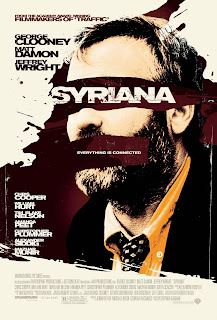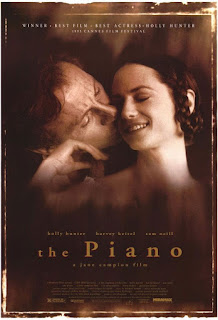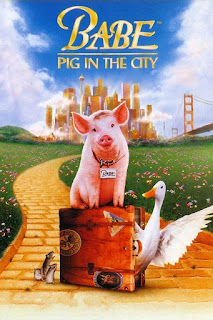November 24th: SYRIANA (Stephen Gaghan, 2005)
The effects of the corrupt international oil industry and its effect on politics, intelligence agencies, and terrorism.
Screenwriter Stephen Gaghan is a former drug addict who brought his own experiences to the table while adapting the British miniseries Traffik into the feature film Traffic, which won Academy Awards for himself and director Steven Soderbergh. Gaghan became interested in similarities between the many facets of the drug war and the oil industry, and the post-9/11"War On Terror" further fueled his interest in the subject.
Soderbergh found additional information for the project in former CIA agent Robert Baer's book See No Evil, drawing on his career working in the field. Gaghan interviewed Baer and the pair subsequently traveled around Europe and the Middle East together, interviewing various government, religious, and business figures.
Upping the ante on Traffic's three major storylines, Gaghan cuts between five different stories (one was eventually cut during the editing process) and sets of characters, linked in various ways. Despite having only directed a small-scale thriller (2002's Abandon), Gaghan was allowed to direct his screenplay, with Sodebergh executive producing.
Main roles originally offered to Christian Bale and Harrison Ford would wind up with Matt Damon and George Clooney, the latter also serving as a producer. The cast of over 100 speaking parts also includes Jeffrey Wright (Basquiat), longtime veteran Christopher Plummer (The Insider, Beginners), Oscar-winners William Hurt and Chris Cooper, Amanda Peet, Alexander Siddig (Game of Thrones), Viola Davis, Egyptian actor Amr Waked, Tom McCarthy (The Wire), Tim Blake Nelson, and newcomer Mazhar Munir.
With cinematographer Robert Elswitt (Boogie Nights, Magnolia) in tow, the film was shot in over 200 locations on five continents, including Egypt, Dubai, Baltimore, Morocco, Geneva, San Antonio, and Washington D.C. While mostly in English, various characters speak Arabic, Urdu, Farsi, French, and Mandarin. Key post-production contributions came from Ang Lee's trusted editor Tim Squyres and musical score by Alexandre Desplat.
The film was released in November of 2005 to mostly positive reviews, with occasional reservations expressed about the story's convolution and lack of clear resolution or thematic answers. Roger Ebert named it his #2 film of the year. Gaghan's screenplay was nominated for an Academy Award, and Clooney won the Oscar for Best Supporting Actor.










Comments
Post a Comment